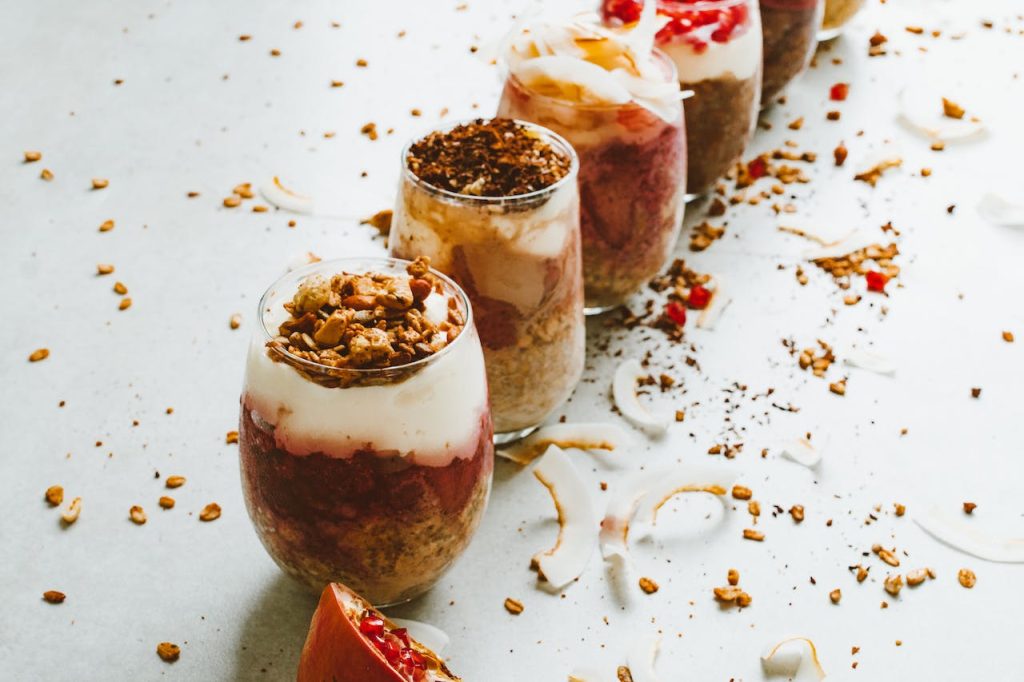Sip on this! Milkshakes, those sweet, creamy treats we all adore, hold more than just a delightful flavor. They carry an intriguing mix of pros and cons that can significantly influence our health. But how exactly do they affect us? Is it all pleasure with no pain? Or is there a hidden price to pay for this delicious indulgence? Let’s dive deep into the world of milkshakes and unravel the truth about their impact on our bodies. By the end, you’ll know whether to treat yourself to this delightful beverage or choose a healthier alternative.

Understanding the Nutritional Composition of Milkshakes
Milkshakes, a popular dessert beverage across the globe, are typically made with milk, ice cream, and sweeteners. They can also be enriched with flavorings such as fruits, chocolate, or cookies. But what exactly is in a milkshake from a nutritional standpoint?
A typical milkshake contains a fair amount of protein and calcium, thanks to the milk and ice cream. It also contains carbohydrates, chiefly from the added sugars. Additionally, milkshakes can be high in fat, depending on the type and amount of ice cream used. The nutritional composition can vary widely based on the size of the milkshake and the ingredients used. For instance, a large, commercially prepared milkshake can have more than 800 calories, while a homemade milkshake made with low-fat milk and fruit can have far fewer.
The Health Benefits of Consuming Milkshakes
Despite their reputation as a decadent treat, milkshakes can actually offer some health benefits. Firstly, they can be a good source of calcium and protein, two nutrients essential for bone health and muscle repair. This makes milkshakes a good post-workout snack, especially for those involved in strenuous physical activities.
Milkshakes can also be a beneficial dietary addition for individuals who struggle to maintain their weight or have difficulty eating solid foods due to medical conditions. Because they are easy to consume and can be high in calories, they can help these individuals meet their nutritional and caloric needs.
The Downside: Unhealthy Aspects of Milkshakes
While milkshakes can offer certain health benefits, they also come with potential downsides. One of the main concerns with regular consumption of milkshakes is their high sugar content. Consuming foods and drinks high in added sugars can lead to weight gain and increase the risk of conditions like heart disease and type 2 diabetes.
The high-calorie content of milkshakes can also contribute to weight gain if consumed in excess. Most commercial milkshakes are also high in unhealthy saturated and trans fats, which can raise your cholesterol levels and increase your risk of heart disease. Lastly, because milkshakes are a liquid food, they may not provide the same level of satiety as solid foods, potentially leading to overeating.
While milkshakes can be a delicious treat and offer some nutritional benefits, they should be consumed in moderation.
The Role of Milkshakes in Weight Management
Milkshakes can play a significant role in weight management. Their high sugar and calorie content can contribute to weight gain if consumed regularly and in large quantities. A typical milkshake can contain anywhere from 300 to 800 calories, depending largely on the size and ingredients used. However, it’s not all bad news. With the right modifications, milkshakes can be a part of a balanced diet. For those aiming to lose weight, low-sugar, low-fat milkshakes can serve as a satisfying treat that doesn’t derail diet plans. For those looking to gain weight or build muscle, protein-packed milkshakes can provide necessary calories and nutrients.

Milkshakes and Lactose Intolerance: What You Should Know
For those with lactose intolerance, consuming milkshakes can lead to uncomfortable digestive symptoms such as bloating, diarrhea, and gas. Lactose is a sugar found in milk and milk products. Those with lactose intolerance have a hard time digesting this sugar because their bodies lack the necessary enzyme, lactase. However, those with lactose intolerance don’t have to miss out on milkshakes entirely. There are numerous lactose-free milk options available, from almond to soy to oat milk, which can be used to make lactose-free milkshakes.
Making Healthier Milkshake Choices: Alternatives and Modifications
While traditional milkshakes can be high in sugar and fat, there are many ways to make healthier milkshake choices. One simple modification is to use low-fat or non-dairy milk instead of whole milk. You can also choose to add a scoop of protein powder for extra nutrients. Opting for natural sweeteners like honey or maple syrup instead of sugar can also make your milkshake healthier. Another great tip is to add fruits, nuts, and seeds for added fiber and nutrients. If you’re craving a chocolate milkshake, use unsweetened cocoa powder instead of chocolate syrup. With these alternatives and modifications, you can enjoy a satisfying milkshake that’s also good for your body.
Milkshakes offer both benefits and drawbacks to our health. Their nutritional composition contains vital elements, yet they can also contribute to weight gain and issues for those with lactose intolerance. However, making smart modifications can lead to healthier choices. Remember, balancing your diet and understanding the impact of what you consume is paramount to maintaining good health. So, before you grab that next milkshake, consider its effects on your body. It’s all about making informed decisions for a healthier you.



